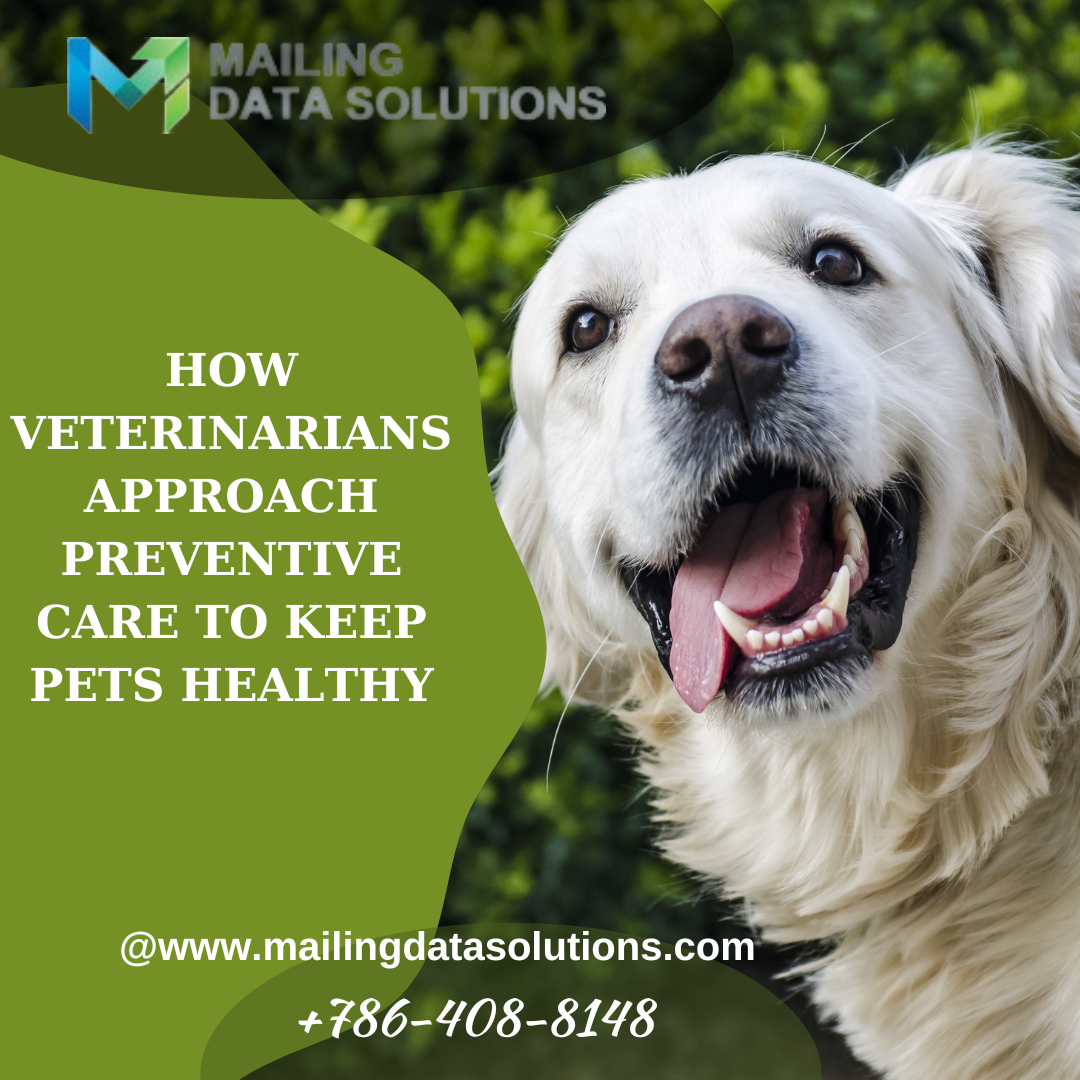How Veterinarians Approach Preventive Care to Keep Pets Healthy

Preventive care is important for ensuring the health and well-being of pets. Veterinarians play a crucial role in implementing proactive measures to prevent diseases and promote longevity in animals. This article explores the strategies veterinarians employ to approach preventive care, emphasizing the importance of regular check-ups, vaccinations, nutrition, and lifestyle management. Additionally, it highlights the significance of leveraging resources like veterinary email lists and veterinarians email lists for disseminating information and educating pet owners about the importance of preventive care.
Regular Wellness Exams.
One of the primary components of preventive care is scheduling regular wellness exams for pets. Veterinarians recommend annual check-ups for adult pets and more frequent visits for senior pets or those with underlying health conditions. During these exams, veterinarians conduct thorough physical examinations, assess the pet's overall health status, and discuss any concerns or changes observed by the pet owner. Early detection of health issues allows veterinarians to intervene promptly and prevent the progression of diseases.
Vaccination Protocols.
Vaccinations are essential for preventing infectious diseases in pets. Veterinarians develop customized vaccination protocols based on the pet's age, lifestyle, and risk factors. Core vaccines, such as those for rabies and distemper, are recommended for all pets, while non-core vaccines may be administered based on individual risk assessments. Veterinarians educate pet owners about the importance of vaccination and ensure compliance with recommended schedules to maintain optimal immunity.
Parasite Prevention.
Parasites pose a main threat to the health of pets and can transmit diseases to both animals and humans. Veterinarians advocate for year-round parasite prevention through the use of preventive medications, such as flea and tick preventives, heartworm preventives, and deformers. Additionally, veterinarians advise pet owners on environmental management strategies to minimize exposure to parasites and reduce the risk of infestation.
Nutritional Counselling.
Proper nutrition is essential for maintaining pets' overall health and preventing nutrition-related diseases. Veterinarians offer personalized nutritional counselling based on the pet's age, breed, activity level, and health status. They recommend high-quality pet foods that meet nutritional requirements and may prescribe therapeutic diets to manage specific health conditions, such as obesity, food allergies, or gastrointestinal issues. By educating pet owners about proper feeding practices and portion control, veterinarians help prevent obesity and its associated health complications.
Dental Care.
Dental health is an often-overlooked aspect of preventive care in pets. Veterinarians emphasize the importance of dental hygiene and recommend regular dental exams and cleanings to prevent periodontal disease, tooth decay, and oral infections. They educate pet owners about at-home dental care practices, such as tooth brushing and dental chews, and may perform professional dental procedures to address dental issues and maintain oral health.
Lifestyle Management.
Veterinarians play a vital role in promoting healthy lifestyles for pets by addressing behavioral and environmental factors that impact their well-being. They provide guidance on exercise, enrichment, and socialization to ensure pets lead fulfilling lives. Veterinarians also counsel pet owners on the importance of mental stimulation, stress management, and routine healthcare maintenance to prevent behavioral problems and improve overall quality of life.
Conclusion.
Preventive care is paramount in safeguarding the health and longevity of pets. Veterinarians employ a holistic approach to preventive care, encompassing regular wellness exams, vaccination protocols, parasite prevention, nutritional counselling, dental care, and lifestyle management. By prioritizing preventive measures and partnering with pet owners, veterinarians empower pet owners to take an active role in preserving their pets' health and well-being. Leveraging resources like veterinary email lists and veterinarians email lists facilitates communication and education efforts, ultimately promoting a healthier pet population.
